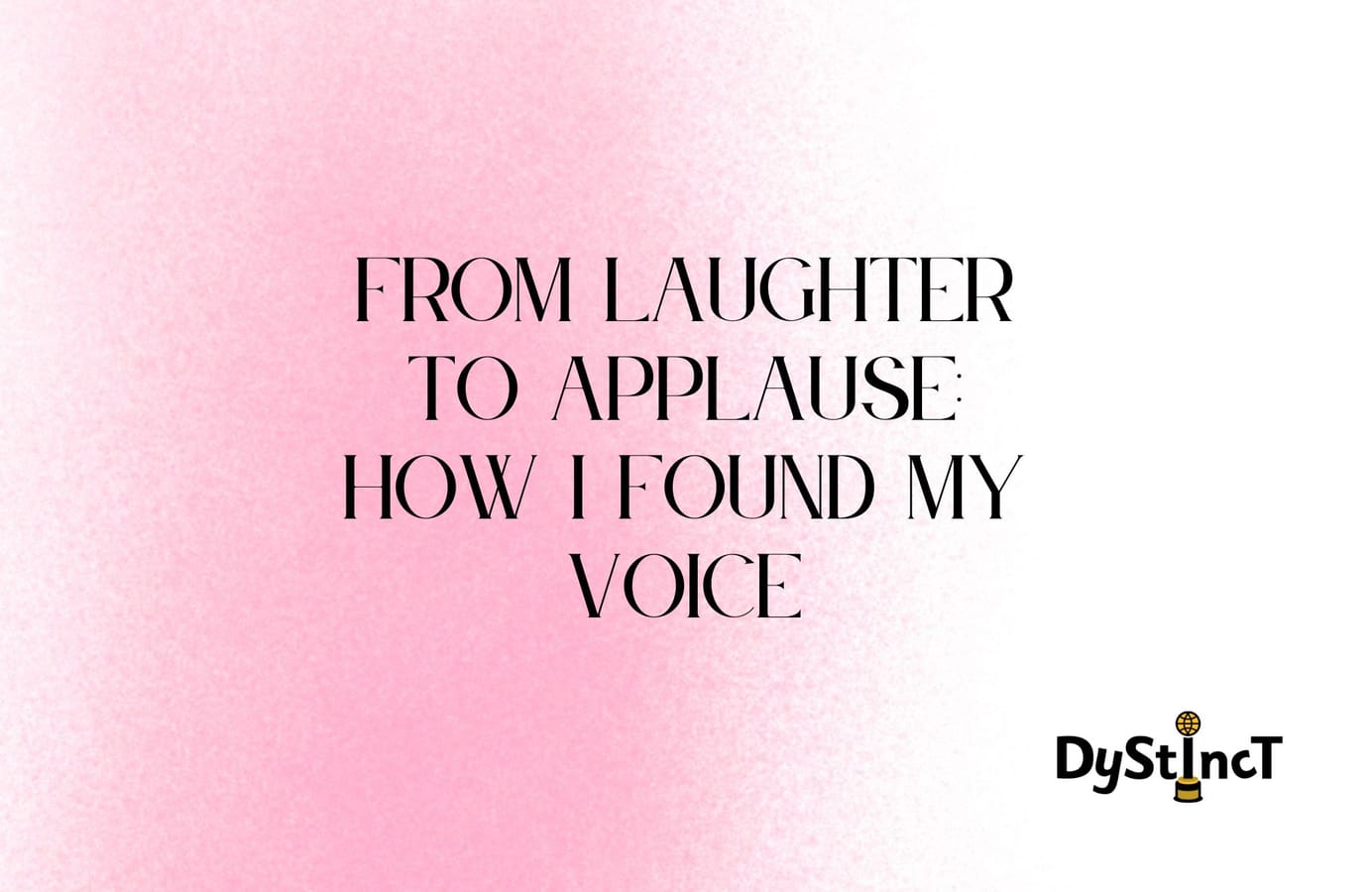
Issue 28: From Laughter to Applause: How I Found My Voice | Golden Navarro
Golden Navarro shares her journey from a childhood marked by dyslexia, trauma, and self-doubt to becoming a confident storyteller and business owner who transforms her struggles into strengths and uses her voice to inspire others to embrace their differences.
Growing up with dyslexia and trauma, I found strength in storytelling and the courage to share my voice.
I often felt like an alien, misunderstood, misplaced, and speaking my own language.
Have you ever written something that made perfect sense to you, but when others read it, it looked like a secret code or a foreign language? That was me as a child, I often felt like an alien, misunderstood, misplaced, and speaking my own language. It wasn’t just in my writing; I would create entire stories in my head, worlds only I seemed to understand. But the moment I had to read out loud in class, everything changed.
The words would leap off the page, roll around on my tongue, and tumble out in ways that made sense to me but not to others. The sound of classmates snickering, followed by a teacher’s correction, “No, Golden, read it again,” cut deep. I remember thinking, But it sounded right to me. My brain was wired differently, and reading felt like magic trickery. Words appeared, disappeared, twisted, and danced like acrobats.
At first, I tried to laugh it off. But eventually, all the corrections and all the laughter chipped away at me. I felt broken, unwanted, and deeply sad. Looking back, I know this is why I have to tell my story. Because if my pain can save even one person from feeling that same isolation, then sharing is worth it. I don’t need to save the whole world. I just need to help one more person understand that dyslexia isn’t a curse.
If my pain can save even one person from feeling that same isolation, then sharing my story is worth it.
“Golden, please go with Miss Angela.”
I thought I was special. Once a week, I was pulled from class and taken to a small room with Miss Angela, where we played games. I didn’t understand that “special” didn’t mean the kind of special I wanted. In fourth grade, my teacher asked everyone to pick books from the school library. While classmates proudly carried long novels, I was quietly directed to the kindergarten section to choose from the small picture books. I thought it was a privilege, not realizing why classmates were staring and pointing. Only later did I understand the shame they saw, even when I didn’t.
Why couldn’t I read like them? Why did words like “dog” twist into “god” or “dang”? Spelling was even worse. “Of, of, oh… UV?” “What… WHAT? Don’t forget to cross the H.”
My brain scrambled letters and numbers, and no matter how hard I tried, the tests came back with Ds and Fs. For five years in a row, I was flunked, but my mom fought to keep me moving forward, going against the school’s recommendation to hold me back again. At the time, I thought it was a blessing. Now I know it was survival.
I actually loved reading. It just took me longer
Middle school wasn’t any easier. Every time reading out loud was assigned, my heart raced. I would find excuses to escape: Trips to the bathroom, avoiding eye contact, anything to dodge the humiliation. The irony? I actually loved reading. It just took me longer. Sometimes I had to read a page three times before it made sense, but I loved getting lost in stories. I loved writing even more. Poems, songs, and short stories became my escape hatch from reality.
This post is for paying subscribers only
SubscribeAlready have an account? Log in


